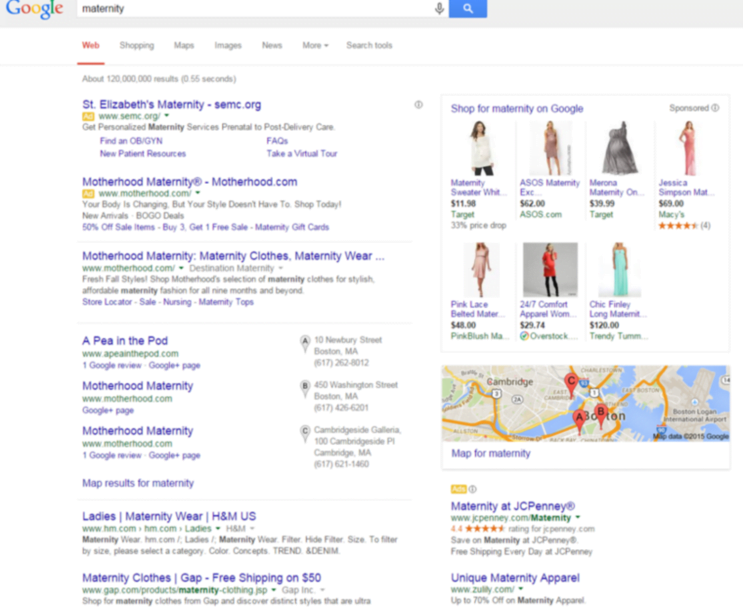PPC campaigns live and die by the data that supports them. While it’s true that PPC campaigns need to be targeted towards transactional users, it can be hard to know which keyword concepts will be winners and which will waste time and budget. High CTR is the goal, but impressions matter just as much (if not more in the early days of a campaign).
So what is an advertiser to do, especially when working on a new account with no data to speak of? How do you build up enough data so that you can start refining?
Broad Match. Nothing splits the room quite like this match type and the implications of using it. The very definition of broad match (the match type designed to bring in the broadest possible audience) means there will be divide. On the one hand, nothing brings in the impressions like broad match – if the keyword is in the query, regardless of the context, your ad can be triggered. On the other hand, ad impressions that don’t match the intent of the search query bring down your CTR, which ultimately causes your cost per click to rise.

It can be tempting to write Broad Match off as a villain, robbing you of your budget and driving down CTR and quality score. Let’s be fair here, Broad Match can come off as unassuming and unsophisticated. It can even come off as needy, demanding all the budget and not leaving any for the perceived superior keyword match-types. Yet when Broad Match is used correctly, it brings invaluable data to the table, and at a reasonable price.
How to Make Bad-Boy Broad Match Work for You
Use broad match in concert with long-tail keywords
As search engines (Google and Bing have made huge strides) get more sophisticated, they’ve gotten better at recognizing intent. There are countless articles and data sources pointing to the benefits of long-tail keywords: they indicate a more transactional user and they tend to filter out the aspirational users. Broad match loves helping out long-tail because it offers more flexibility in the keyword phrase without changing the intent of the keyword.
What it doesn’t love is single-word keywords that can be in any phrase, regardless of intent or context. Let’s take a keyword as innocuous as “maternity”. On the surface it seems self-explanatory: the user searching for this must be either pregnant or know someone who is. Here’s the result:

Now here’s the problem – is the user looking for clothes, maternity leave rights, or a wing of a hospital?
In this instance, we see advertisers who can afford to bid high on the uncertainty just for the sake of keeping their major house name brand at the forefront of people’s minds (JC Penney, H&M, etc.), a major family of hospitals, and the name brand for a line of maternity clothes. Additionally, since impulse purchases are easier to facilitate through Google Shopping, the window will take up spots that used to be reserved for winners 4-6 in the ad auction.
Broad match will not care who you are or who your audience is – all it cares about are keywords. In order to avoid this pitfall:
- Ensure the keywords set to broad are at least 3-4 words long so the proper context can be applied.
- Avoid single-word keywords unless they are brand-centric and set to exact close variant.
Show me the data
As referenced before, making decisions on account structure and performance benchmarks can be difficult. While it’s possible to generate data organically, most initiatives don’t have the time to languish in low impression land. While too many impressions can drown an account in bad data, too few can starve it from meaningful growth. Broad match to the rescue!
Broad match wins for bringing in data in two key ways:
- Broad match allows for your ads to be matched to synonyms and other close variants. While this may eventually prove a liability to an account, in the early days it allows advertisers to get an unbiased picture of what the market is searching for and where it’s meaningful to invest in keyword concepts, as well as opportunities to discover budget-protecting negative keywords.
- Broad match costs less (or at least it should) per click. Since broad match tends to allow for looser connections, it is expected it will get the lowest MCPC (max cost per click) in the campaign. For example, “Maternity” on broad match pulled in three different kinds of ads, but there was still the potential from a demographic perspective the user would find value in the ad, and click through. Additionally, impressions cost nothing, and broad match impressions create a free billboard for your brand to remind the user they need your product.
A few final notes:
- Though broad match has its downsides, it still brings in 56% more conversions than exact match.
- Broad match is the default match type in AdWords for a reason – when beginning a campaign, broad brings in the most data for you to act on.
- Broad match in Bing Ads is a lot broader than AdWords, so be sure when replicating accounts in Bing that you account for this difference and plan accordingly.
- Google pushes Broad Match + Smart Bidding, but be careful with this strategy, especially if you’re a beginner.
What’s your favorite case of broad match being a hero?







